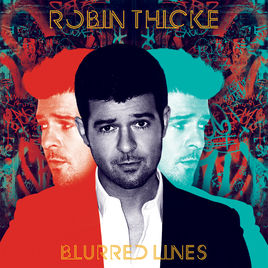 With the closing of Bill Patry’s Copyright Blog, there’s a distinct absence of copyright wonkery on the web. So I will occasionally do my best to chip in. Today’s case raises the following possibility: Suppose you run a business heavily dependent on a certain software program. And suppose the owner of that program keeps writing you cease and desist letters, saying that your copy is infringing and that each passing day accumulates more actual damages, as well as your profits attributable to the infringement. You want to clear this cloud from your business, and heaven forfend, if you are found to be infringing, put a cap on the damages. But let’s suppose the owner hasn’t gotten around to actually registering the copyright yet. Can you sue for a declaratory judgement action?
With the closing of Bill Patry’s Copyright Blog, there’s a distinct absence of copyright wonkery on the web. So I will occasionally do my best to chip in. Today’s case raises the following possibility: Suppose you run a business heavily dependent on a certain software program. And suppose the owner of that program keeps writing you cease and desist letters, saying that your copy is infringing and that each passing day accumulates more actual damages, as well as your profits attributable to the infringement. You want to clear this cloud from your business, and heaven forfend, if you are found to be infringing, put a cap on the damages. But let’s suppose the owner hasn’t gotten around to actually registering the copyright yet. Can you sue for a declaratory judgement action?
In Weitzman v. Microcomputer Resources, the Eleventh Circuit said no. That intolerable situation can persist until the owner finally decides to sue you instead.
The problem is in locating the source of the court’s subject-matter jurisdiction. The Declaratory Judgment Act itself does not provide jurisdiction; it has to be located somewhere else. According to the 11th Circuit, the way to do that is for the court to “‘determine whether or not the cause of action anticipated by the declaratory judgment plaintiff arises under federal law.’ . . . Federal question jurisdiction ‘exists in a declaratory judgment action if the plaintiff has alleged facts in a well-pleaded complaint which demonstrate that the defendant could file a coercive action arising under federal law.'”
Certainly if the plaintiff brought an infringement suit, that would arise under federal law, namely the Copyright Act. The problem for Weitzman, however, was that MCR was a few steps short of being able to file an infringement action. In particular, it hadn’t registered the copyright in the program yet. Section 411(a) of the Copyright Act provides that “no action for infringement of the copyright in any United States work shall be instituted until preregistration or registration of the copyright claim has been made in accordance with this title.” As the 11th Circuit noted, “The consensus among federal appellate courts is that the provisions of 17 U.S.C. § 411(a) are jurisdictional.” No registration, no suit. And therefore, the court held, without the registration, there can be no declaratory judgement action either, because the defendant would not be able to “file a coercive action arising under federal law.”
This strikes me as unsatisfactory, although it’s a little hard to tell where the analysis goes off the rails. A copyright registration these days is barely more than a formality. Unlike patents or trademarks, copyright registration applications get only minimal review by the Copyright Office; the vast majority are approved without modification. It does not seem functionally different from any of the other pro forma requirements for filing a case in federal court. For example, you can’t “file a a coercive action arising under federal law” until after you’ve drafted and submitted a summons and complaint to the court clerk, either — another formal requirement that gets minimal review. And, in some sense, it’s “jurisdictional” — a federal court has no power to hear a civil case in which no complaint has been filed or served. But it’s hardly the case that declaratory judgement plaintiffs must wait until the defendant has filed an infringement action before they can file a declaratory judgement action. Indeed, that would defeat the purpose of having declaratory judgement actions in the first place.
I think the source of the problem here is in deciding what gets classified as “jurisdictional,” or alternatively in the assumption that all jurisdictional hurdles that a copyright claimant would face in the counterfactual world where the claimant is right then and there suing for infringement also serve as bars for declaratory judgement plaintiffs. To paraphrase Orwell, some requirements are more jurisdictional than others. The requirement that a registration be filed before a court will proceed with hearing an infringement complaint is a good one to have. It serves the same purpose as the filing of a complaint — it puts the defendant (and others) on notice of what the plaintiff’s claims are. But here we have a situation in which the potential defendant feels confident that he knows what the claims are and is willing to proceed anyway, without a registration or a complaint from the other side.
And, in fact, it seems unlikely that a defendant in Weitzman’s situation would ever be able to file for a declaratory judgement, unless the copyright claimant was slow on the draw and the putative infringer just happened to get wind of the registration before the claimant could file an infringement action. The 11th Circuit’s decision seems to essentially eliminate the possibility of declaratory judgement actions in a wide range of cases.

